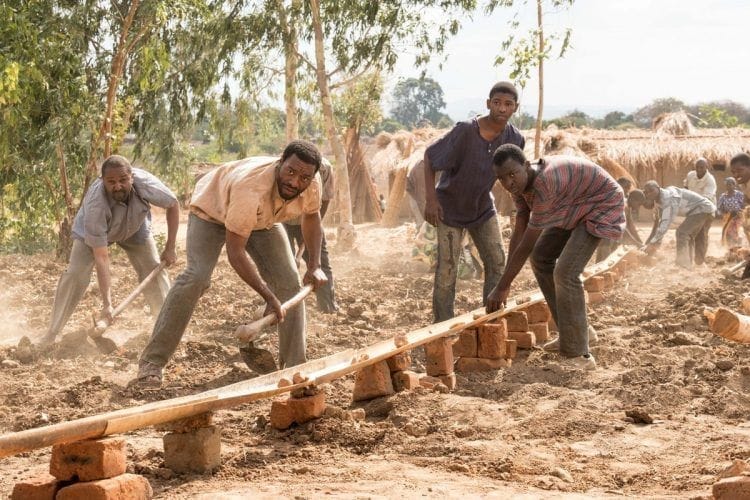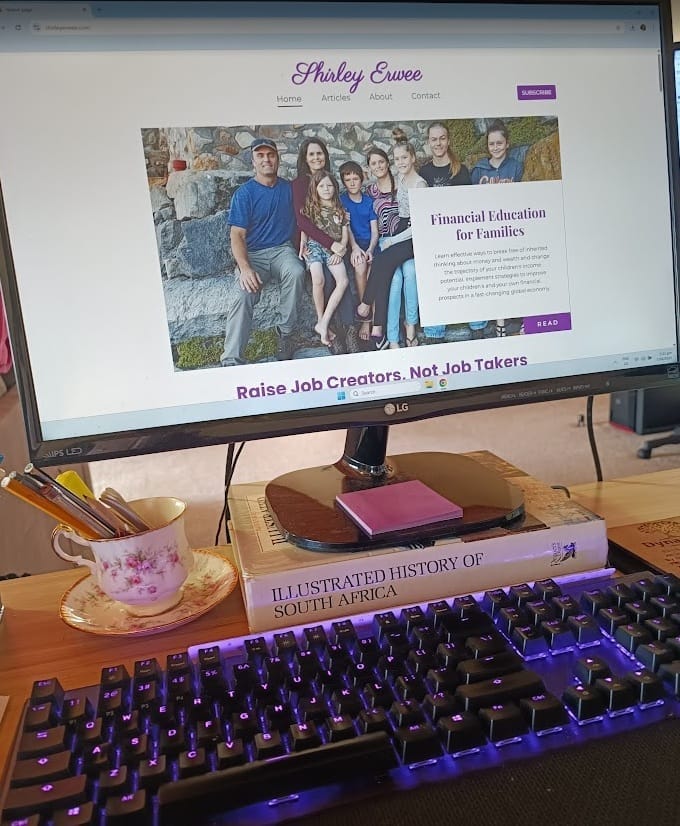Shirley Erwee
Shirley Erwee
The Boy Who Harnessed the Wind: Entrepreneurial Thinking for Young Minds
Discover entrepreneurial lessons from The Boy Who Harnessed the Wind—resilience, creativity and purpose-driven action for young minds.
As parents, we’re always looking for stories that inspire our children to dream big, think differently and act courageously. One such story that perfectly illustrates the entrepreneurial mindset is The Boy Who Harnessed the Wind, a remarkable book and film based on the true story of William Kamkwamba, a young boy from Malawi who built a windmill to save his village from famine.
Beyond the cinematic experience, this story offers valuable lessons for both children and parents on creativity, resourcefulness and perseverance, the very qualities that nurture young entrepreneurs.
Buy The Boy Who Harnessed the Wind
Book: Young Readers' Edition
Picture Book
Audiobook
Kindle
William and the Windmill: Documentary on Amazon Prime
Search for the movie on Netflix or other online platforms.
1. Creativity and Resourcefulness are Game-Changers
William didn’t have access to formal training or high-tech tools. What he did have was curiosity and determination. He scavenged parts, studied books and experimented tirelessly until he succeeded. For young entrepreneurs, this is a powerful lesson: it’s not about the resources you start with but how creatively you use what’s available. Parents can foster this mindset by encouraging children to solve problems in inventive ways, whether it’s a small school project or a home-based venture.
2. Curiosity and Lifelong Learning Fuel Success
William’s journey began with a simple interest in science. He spent hours at the local library, learning about electricity and windmills. Entrepreneurial success often starts with curiosity, the willingness to ask “why” and “how” and then pursue the answer. As parents, we can cultivate this by exposing children to diverse experiences, books and mentors who ignite their curiosity and encourage self-directed learning.
3. Resilience in the Face of Obstacles
William’s village faced famine, his family were in financial difficulty and he faced skepticism from those around him. Yet he persevered. Young entrepreneurs will inevitably encounter setbacks such as failed ideas, unexpected costs or discouragement. The lesson from William is clear: resilience is a skill worth developing. Celebrate effort over immediate results and help children reframe failures as stepping stones toward their goals.

4. The Power of Purpose and Impact
What made William’s work extraordinary wasn’t just his ingenuity, it was his purpose. His invention wasn’t about personal gain; it was about improving the lives of his community. This teaches young entrepreneurs that successful ventures often start with a clear “why.” Parents can guide children to identify ways their ideas or skills can create value for others, nurturing compassion and purpose into their entrepreneurial journey.
5. The Role of Mentors and Community Support
Though William was largely self-taught, he benefitted from guidance from teachers and supportive community members. Entrepreneurs thrive when they have mentors who challenge, advise and encourage them. For children, having a parent, teacher or community member who believes in their ideas can make the difference between giving up and going the extra mile.
6. Turning Adversity into Opportunity
Perhaps the most important lesson is William’s ability to see opportunity in adversity. Scarcity and hardship didn’t deter him, instead they fueled his innovation. Teaching children to view challenges as opportunities cultivates problem-solving skills, resilience and a proactive mindset, all essential traits for entrepreneurial success.

How Parents Can Encourage Entrepreneurial Thinking Inspired by William Kamkwamba
Encourage exploration: Let your children experiment and tinker, even if it gets messy.
Provide access to knowledge: Books, online resources and mentors open doors to ideas they can act on.
Celebrate effort and perseverance: Highlight the journey, not just the outcome.
Foster empathy-driven ideas: Encourage children to think about solutions that benefit others.
Guide reflection: After setbacks, help them analyse what worked, what didn’t and what they’d try next.
The Boy Who Harnessed the Wind is more than an inspiring story; it’s a blueprint for young entrepreneurs and the parents who guide them. By modelling curiosity, resilience and purpose-driven action, we can help our children see that even in the most challenging circumstances, creativity and determination can change lives and perhaps even the world.
Here are some family discussion questions about The Boy Who Harnessed the Wind. They’re designed to help spark meaningful conversations with children about resilience, creativity and entrepreneurship:
Family Discussion Questions
1. William didn’t have many resources, but he used what he could find to solve a big problem.
What resources do we already have at home that we could use to create something new?
2. When people doubted him, William kept working on his windmill.
Have you ever had an idea that others didn’t believe in? What did you do?
3. William built his invention to help his whole community, not just himself.
What is a problem in our community (or school, or family) that you’d like to help solve?
4. Sometimes things didn’t work the first time William tried.
How do you feel when something doesn’t work right away? What helps you keep trying?
5. William learned from books in the library.
If you could learn about anything right now, what would it be and why?
Get the printable discussion worksheet: The Boy Who Harnessed the Wind
Building Dreams Across Continents: From Malawi to West Virginia
If you found inspiration in The Boy Who Harnessed the Wind, you might also appreciate my similar article about the movie, October Sky.
Launching Dreams Together: Entrepreneurial Lessons for Parents and Kids from October Sky
Both movies showcase young individuals who, despite limited resources and significant challenges, pursued their dreams with unwavering determination. While William Kamkwamba's ingenuity in Malawi and Homer Hickam's rocketry in West Virginia stem from different contexts, their stories share the themes of resilience, innovation and the transformative power of belief. Explore how these narratives offer valuable lessons for young entrepreneurs and the parents who support them.
Use the Same Business Tools as Me
You don't have to build a windmill, but perhaps you need a suitable platform to build your new venture?
I use Systeme.io to run my website, manage my mailing list, send newsletters, sell products and host courses and it's all from one place. You can start with the free version and easily upgrade as your business grows.

Even if you don’t have a business idea yet, Systeme.io is a great way to learn the basics. Build a website, start a blog, create sales pages or even put your CV online to begin building the brand of you. Along the way, you’ll gain valuable marketing skills that apply to any business.
Using Systeme.io is much easier than building everything from scratch! Sign up now and test it out!
Stay fired up for success with Shirley's
Entrepreneur Newsletter
Raising Job Creators
Keep up the momentum of building your family's financial education.
Don't lose your drive to take small daily steps to reach for big dreams.
Your privacy is secure.
You can opt-out anytime.
Categories
Raising Job Creators Newsletter
Subscribe to the newsletter and stay fired up for success! By joining, you acknowledge that you'll receive Shirley's newsletter. You can opt-out anytime hassle-free.
Copyright © 2025. Shirley Erwee. All Rights Reserved
Created with ©systeme.io



